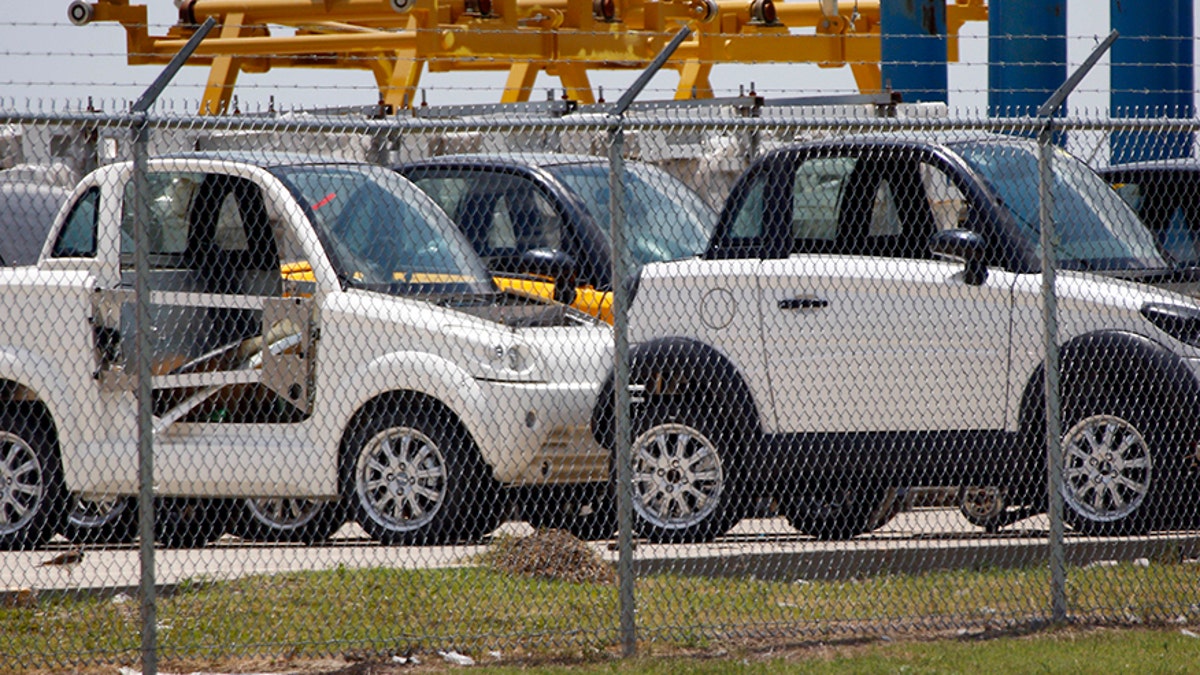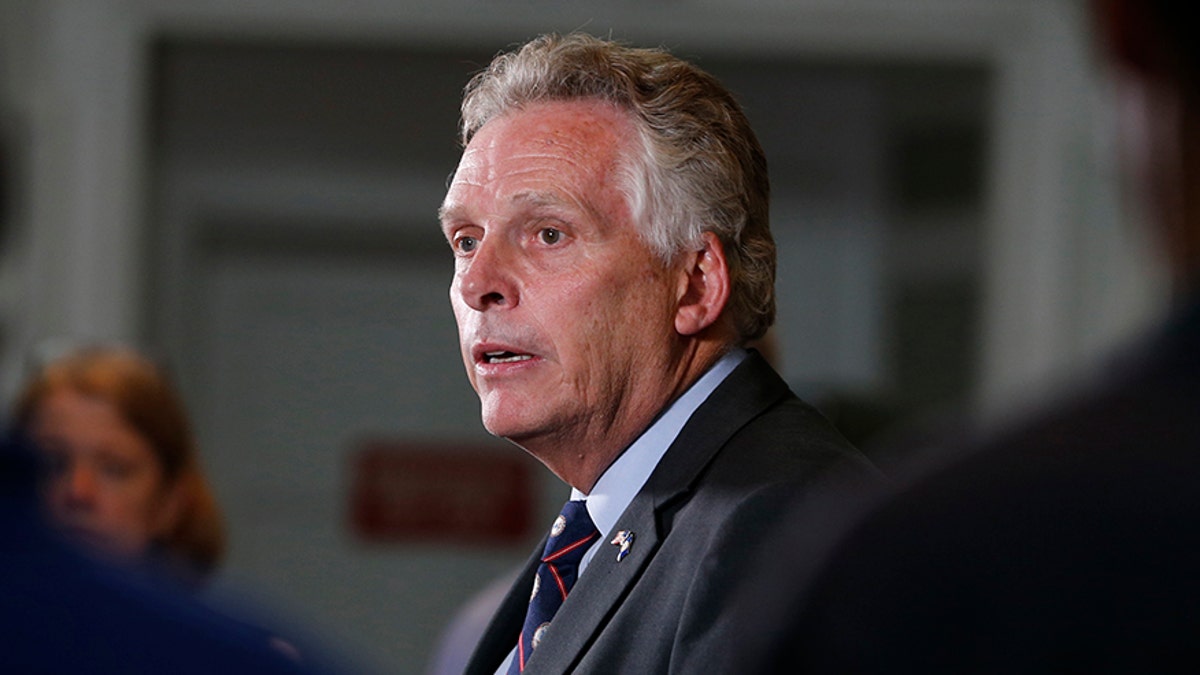
June 13, 2016: Production cars are parked outside the GreenTech Automotive manufacturing plant in Robinsonville, Mississippi. (AP)
A new lawsuit accuses Gov. Terry McAuliffe of Virginia and Hillary Clinton’s brother Anthony Rodham of stealing the “money and dreams” of a group of Chinese investors who propped up a troubled electric-car company, believing they would gain U.S. residency.
The investors filed suit in Fairfax County, Virginia, last week against the automaker, GreenTech Automotive, McAuliffe, Clinton's brother, company CEO Charles Wang and various related companies. The plaintiffs, seeking at least $17.9 million in repayment, accuse the defendants of milking political connections to perpetuate a $120 million scam.
"Plaintiffs now face the prospect of having to uproot their families once again, with the expense and stress of deportation to China looming before them," the lawsuit says.
McAuliffe is set to leave office in January and is often mentioned as a potential 2020 Democratic presidential candidate.
Pitched nearly a decade ago as a revolutionary company that would use foreign investments to build a new line of energy-efficient cars that would create jobs in the impoverished Mississippi Delta, GreenTech -- which closed a factory in Robinsonville, Mississippi earlier this year -- has failed to live up to those promises and has been a magnet for controversy.
McAuliffe served as chairman of GreenTech before leaving the company in 2012 to run for governor. Rodham helped run an associated fund designed to attract foreign money from investors intent on green cards.
Rodham declined an Associated Press request for comment. A GreenTech representative did not immediately return an AP email seeking comment.
Documents obtained by AP show that the Department of Homeland Security decided to reject a number of visa requests made through Rodham's fund because GreenTech had created so few jobs.
The lawsuits were first reported by Politico. The Virginia suit alleges that the governor and his associates "exploited" investors' desire to become permanent residents with an implicit message: "Invest $500,000 in our electric car company, and will leverage our political connections to ensure your immigration papers will get to the top of the pile."

Aug. 12, 2017: Gov. Terry McAuliffe addresses a news conference concerning the white nationalist rally and violence in Charlottesville, Virginia. (AP)
The governor's spokeswoman, Crystal Carson, dismissed the investors’ lawsuit. "We strongly reject this baseless suit, which has no merit whatsoever. The claims, which regurgitate old political attacks regarding a company that Governor McAuliffe left five years ago, were brought by a lawyer with conservative ties," Carson told Politico. "We are confident it will be dismissed."
But one of the lawyers who drafted the lawsuit fired back at the assertion of political motivations.
"I represented the Chamber of Commerce once or twice. ... I'm not a conservative dude," Scott Abeles of Los Angeles-based Gerard Fox Law told Politico.
The suit says McAuliffe and Rodham visited China to seek investments in the startup.
“Despite promising investors, in addition to a highly desired immigration status, that their investments in GreenTech were guaranteed, GreenTech has manufactured very few cars, sold no cars and is rumored to be in the brink of bankruptcy,” the lawsuit adds.
“They painted a false picture of the company, including instructing employees to be pretend to be working while investors toured the plant.”
The lawsuit comes after the Mississippi attorney general, Jim Hood, sued GreenTech in state court in Jackson earlier this month. Hood, a Democrat, is demanding that the company repay $5 million plus interest on money the state and Tunica County borrowed to buy land and build a car factory, plus $2 million in punitive damages.
A 2015 report also found that a senior Homeland Security official broke ethics rules when he intervened in visa proceedings for GreenTech, according to AP. The company has also been facing an investigation by the Securities and Exchange Commission, the status of which is not clear.
In Hood's lawsuit, the state also wants a judge to block GreenTech from removing anything from its building in Robinsonville, foreclose on the building and order it sold to cover the company's debts, and to grant the state a claim on any future revenue GreenTech might generate.
In July, Stacey E. Pickering, Mississippi state auditor and a Republican, found that the company couldn't prove that it had met any of the requirements of a 2011 incentive deal with the state, including investing $60 million or creating 350 jobs. Pickering found that the company had only created 143 jobs, and was down to 10 by February. Hood's lawsuit said the company "has removed its operations outside the state of Mississippi."
Pickering also demanded immediate repayment of everything GreenTech owed, setting the stage for Hood's civil lawsuit.
Pickering's audit said GreenTech provided written documents saying it had raised $43 million from 86 investors, who each put in $500,000 through a federal program that allows people to obtain U.S. residency by investing that amount and creating 10 jobs.
The Associated Press contributed to this report.




